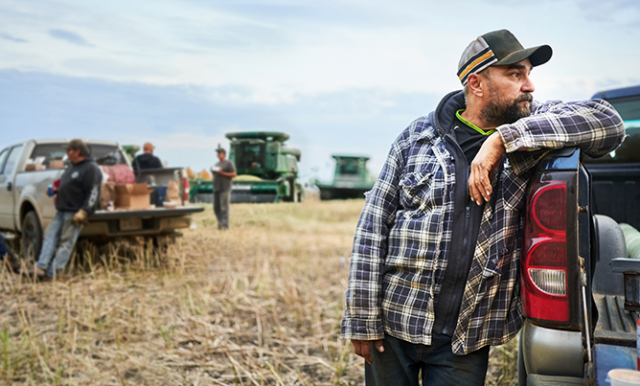
Retiring from Farming is Complex and Not Always Planned
The decision to retire is complex enough. But throw a family farm into the mix and it introduces a host of issues most people never think about.
How long will the farmer be physically capable of doing this work? Are any of the adult children willing to take over the operation, and which one? Will the farm continue to eke out a profit, and could it be sold to another farmer or agribusiness? And these decisions are not easy for aging farmers who have spilled blood, sweat and tears on the land for decades.
A survey created to explore their unique concerns takes a first stab at understanding the resources available to help farmers devise their unusually complex retirement plans. Some of the findings are relevant to other small business owners who also face succession issues.
The average age of the farmers in the survey – mostly men and all from Wisconsin – is 63. But retirement isn’t top of mind for most of them.
More than two-thirds said they have not figured out when they will retire. Among those who do have an age in mind, it is 69, which is several years older than the typical retirement age.
Fewer than half of the farmers said they have a firm plan in place for passing on the farm when they will no longer be working. And one in four have only started working on their plans.
The good news is that a majority of the people who responded to the survey do use professional services like financial advisers, attorneys and accountants. However, 14 percent could be doing more: they do not use these outside resources at all, or they employ only one professional, which may not be enough for their complex situations.
The farmers are, however, counting on being eligible for some type of federal retirement or health benefits when they retire. A majority have given some thought to accessing Social Security, Medicare, and or Medicaid, the federal government’s health insurance program for low-income workers and retirees.
“Most farmers are using more than one resource for financial planning” and “are factoring in eligibility for [government] programs ‘at least a little’ when making financial decisions,” the researchers concluded.
But in another indication they could be doing more, seven out of 10 farmers have had no contact yet with the U.S. Social Security Administration about their retirement benefits. Farm owners, whom the government views as self-employed, contribute to Social Security. But only about a third of them were familiar with the MySocialSecurity website the government has set up to provide individual workers with an estimate of their future retirement benefits based on their earnings history.
The Wisconsin farmers also seem wary of using the Internet to help with retirement planning. Only about one in four uses online resources in their planning. Spotty internet access in some rural areas may be a factor in their hesitance to go online.
Social Security increasingly encourages workers to get their benefit information on the agency’s website. But farmers said they still prefer a telephone call with someone at the agency. A majority of them are also within a 30-minute drive of a Social Security office.
This survey is just a start on understanding farmers’ considerable retirement planning challenges, and more work is needed, the researchers said.
To read this study by J. Michael Collins and Marissa Eckrote-Nordland, see “Social Security, Retirement and Farmers – a Survey of Wisconsin Farm Owners.”
The research reported herein was performed pursuant to a grant from the U.S. Social Security Administration (SSA) funded as part of the Retirement and Disability Research Consortium. The opinions and conclusions expressed are solely those of the authors and do not represent the opinions or policy of SSA or any agency of the Federal Government. Neither the United States Government nor any agency thereof, nor any of their employees, makes any warranty, express or implied, or assumes any legal liability or responsibility for the accuracy, completeness, or usefulness of the contents of this report. Reference herein to any specific commercial product, process or service by trade name, trademark, manufacturer, or otherwise does not necessarily constitute or imply endorsement, recommendation or favoring by the United States Government or any agency thereof.
Comments are closed.







In the 1970’s, I worked in the farm market as an agent for a large mutual life insurance company. I lived in Ames, Iowa and visited with farmers who were loan customers of the insurance company. Most of them never thought about retirement or estate planning to pass the farm on to the next generation. My job was to educate them about consequences of not planning for their estates and the benefits of owning life insurance to pay estate taxes and/or equalize estate distributions. Looks like farmers haven’t changed their thinking much over the years.
They are lucky to have Social Security, which can help them retire. However, many farmers worldwide need to work until they can’t because they do not receive benefits or financial help from their government.